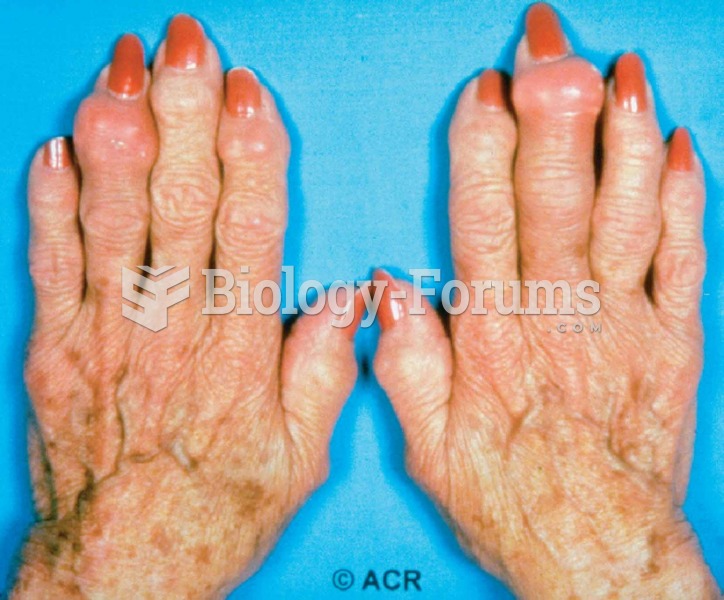|
|
|
Green tea is able to stop the scent of garlic or onion from causing bad breath.
Blastomycosis is often misdiagnosed, resulting in tragic outcomes. It is caused by a fungus living in moist soil, in wooded areas of the United States and Canada. If inhaled, the fungus can cause mild breathing problems that may worsen and cause serious illness and even death.
More than 30% of American adults, and about 12% of children utilize health care approaches that were developed outside of conventional medicine.
Barbituric acid, the base material of barbiturates, was first synthesized in 1863 by Adolph von Bayer. His company later went on to synthesize aspirin for the first time, and Bayer aspirin is still a popular brand today.
Alcohol acts as a diuretic. Eight ounces of water is needed to metabolize just 1 ounce of alcohol.
 Thoracentesis. A needle is inserted between the ribs to withdraw fluid from the pleural sac at the b
Thoracentesis. A needle is inserted between the ribs to withdraw fluid from the pleural sac at the b
 A freshly applied autograft. Note that the donor skin has been perforated so that it can be stretche
A freshly applied autograft. Note that the donor skin has been perforated so that it can be stretche





